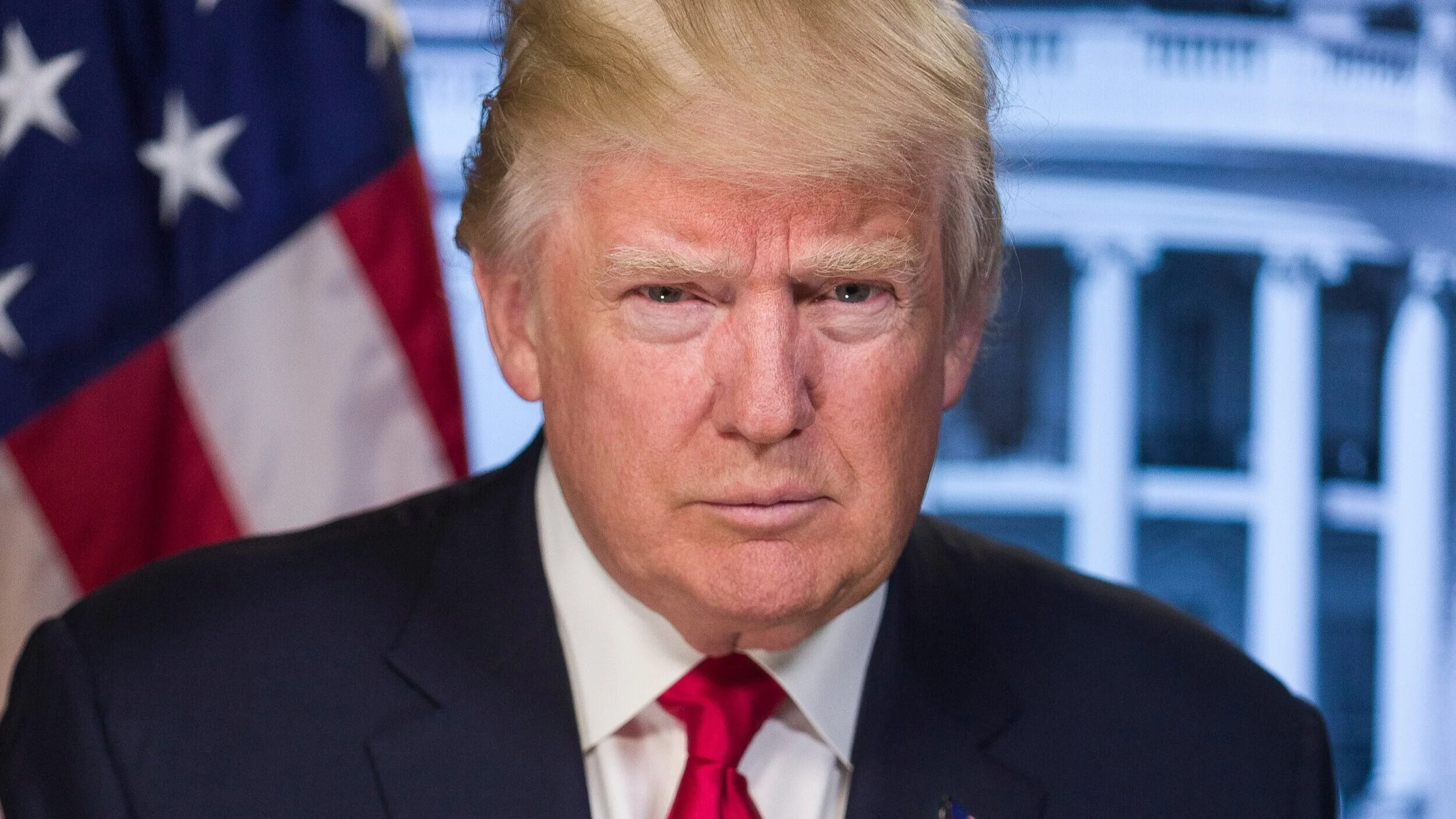Confronted With Afghanistan’s Reality, Trump Faces Fear of Being Deemed ‘A Loser’
October 18, 2017 by Caroline Calandro
President Trump has presented a series of points regarding changes in approaches to the war in Afghanistan over the course of the election last year and through his administration thus far, promising new plans to subvert the decisions of the Obama administration.
On the campaign trail Trump’s main promises were to put “America First” and that instead of Hillary Clinton bringing “another four years of Obama,” he would restore America to a former glory of sorts. Now in office he has been forced to reconcile with his unachievable proposals to pull out of Afghanistan, and now has to accept that he too will be dealing with the conflict there for a while.
The tasks and decisions of the role of President of the United States are clearly extremely difficult. It is easy to criticize the decisions made by presidents without being privy to the information that they are briefed on.
On President Obama, Mark Landler of the New York Times wrote, “the optimistic president who once thought Afghanistan was winnable had, through bitter experience, become the commander in chief of a forever war.”
Just like Trump, Obama won partly based on the public’s desire for change, and he represented hope, which was encompassed in his campaign slogans “Change” and “Change We Need.” However, in the case of Afghanistan, it would appear the U.S. is now in it for the long haul.
Landler describes how wrestling with the issues in Afghanistan changed President Obama and his outlooks and approaches to government.
“[Afghanistan] is where he discovered his affinity for drones, sharpened his belief in the limits of American intervention, battled his generals and hardened his disdain for unreliable foreign leaders. It reaffirmed his suspicions about sending American troops into foreign conflicts and made him reluctant to use more force in Iraq, Syria, Libya and other war zones.” Landler says.
Susan Glasser wrote in a Politico article that President Trump utilized “escalatory rhetoric” to sway voters into believing he could offer a path to swift change. This means that while there are some technical differences, it appears that as of now, for the most part the approach to Afghanistan will stay nearly the same as they were under Obama, though this will never be admitted.
According to Glasser, “[President Trump] repeatedly vowed to “win” a conflict that his Defense Secretary James Mattis told Congress recently “we are not winning.”
Laurel Miller, senior political scientist at the RAND Corporation and former acting special representative for Afghanistan and Pakistan at the U.S. Department of State weighed in on the complexity of the situation we are entrenched in with Afghanistan and how limited our options in an interview with Glasser on The Global Politico.
“I don’t think there is any serious analyst of the situation in Afghanistan who believes that the war is winnable. It’s possible to prevent the defeat of the Afghan government and prevent military victory by the Taliban, but this is not a war that’s going to be won, certainly not in any time horizon that’s relevant to political decision-making in Washington,” said Miller.
President Trump, on the other hand, apparently has a fresh new hand of cards to play that will crown the United States victorious. Or so he claims. Articles from both liberal and conservative news voiced disagreement and disappointment upon his announcement that we would not be withdrawing.
President Trump maintains that he does not want to get sucked into even more debt and responsibility immersing the U.S. in futile nation building, which some considered something of a hallmark of the Obama administration. Instead, he said we would focus on “killing terrorists.”
“We want them to succeed but we will no longer use American military might to construct democracies in far away lands or try to rebuild other countries in our own image,” said President Trump.
But according to Max Boot, a journalist for the New York Times who visited Afghanistan in August, “all the briefings [he] received from American officials were about nation-building. Admittedly, no one used that term — the preferred euphemisms are “capacity building,” “enabling” and “working by, through and with.” But the intent is the same: to create Afghan government institutions that can overcome the threats [of terrorist groups].”
Thus, the means are the same, and the goal is the same. Though Trump recognizes that peace talks with the Taliban are next to unachievable at this point, he will continue to “nation-build,” it will just be called something else.
Trump has faced some backlash for “flip-flopping” on the issue of Afghanistan after becoming president, as he initially posted plenty of tweets denouncing the cost of lives and money there, saying we should “get out!” Politically, it is a big deal for a president to have to admit a change in stance on so large an issue. But even more so he had break the news to the American public that he would be the third president taking ownership for Afghanistan. This president who had promised to put “America first” and had touted ideas of isolationism has found that he has no other option than to essentially stay the course. Of course, to defend himself he framed the situation as a problem created by previous administrations that he would fix by choosing to continue working on it with troops on the ground, rather than acknowledging that it was a situation he was forced into due to a genuine lack of options. But according to Glasser, he has an image to uphold.
“Trump went out of his way… to criticize his successor for “hastily and mistakenly” withdrawing from Iraq in 2011—without mentioning that he supported that move at the time. In his speech on Monday, he claimed that he now viewed it as a mistake so consequential it had shaped his own determination to fight on in Afghanistan,” she writes.
Regarding Afghanistan, Trump made the following proposals. First he wants to give authority to ramp up troop levels, something which will no longer be publicly discussed. He wants to increase military autonomy, get the Taliban to come to the table to discuss political solutions (though even he is skeptical about the possibility of this), no more operation date announcements. President Trump wants to stop the harboring of terrorists in Pakistan by cutting off aid, and gaining more economic and security assistance from India.
However, it seems that these ideas outline mostly more of the same approaches we have already seen, or will not have much of a changing effect anyways.
“Despite differences in personnel at the leadership level, I would not say that the policy in Afghanistan is more militarized now than it was during the Obama administration,” said Miller.
Another tenet of Trump’s plan is not releasing dates for withdrawal and insertion of troops in Afghanistan. Miller also came into her position with the mindset that announcing dates had been a costly mistake, a common belief held by many Americans. Her career experience actually caused her to change her mind.
“People see it as the sort of single point of failure but I no longer believe that was such a consequential decision,” she said.
However, President Trump did not offer much beyond open-ended promises about “fight[ing] to win,” though, according to Vox, administration sources have said the plan involves sending a few thousand more troops to Afghanistan.
At end of June the State Department got rid of the war crimes office and folded the Special Representative for Afghanistan and Pakistan (SRAP) office into more regularized bureaucratic structure, putting that responsibility back into one of the regular regional bureaus of the state department.
Miller tries to remain forward thinking but acknowledges her experience has shown her that this problem will be a companion to the United States for a long while.
“It’s always possible to rhetorically add some bells and whistles to whatever statement you make about what you’re going to do, but…there aren’t any fancy new ideas. As brilliant and capable as some of the American military leaders may be, they don’t have any new tricks up their sleeve to be used to suddenly turn around Afghanistan that haven’t been tried before in one way or another.”
According to her, the U.S. and other allies pay over 90 percent of the cost of Afghan security forces and more than 60 percent of the total Afghan budget. If we were to withdraw from financial commitments and military engagement, the government would probably suffer political crisis and would not be able to keep fighting the Taliban. This would create, once again, ungoverned parts of Afghanistan where terrorist groups are likely to reemerge, essentially only increasing our danger.
Miller generally was not quick to criticize President Trump, but she did make it clear that Afghanistan currently is not at the top of the agenda for this administration.
“I think it’s unquestionable that the current administration prefers not to prioritize Afghanistan. It’s not been a subject of public discussion,” she said. “The SRAP office was closed down. The Secretary of State has not yet traveled to the region. There’s no indication of the president going there, which is a choice. Even though it’s not officially stated, this is basically a judgment about where the greater risks and interests lie around the world.”
The subtitle to Alex Ward’s Vox article appears to sum the situation up well: “[Trump] never liked the war, but now his legacy is wrapped up in the quagmire too.”
Written for University of Connecticut International Reporting class

